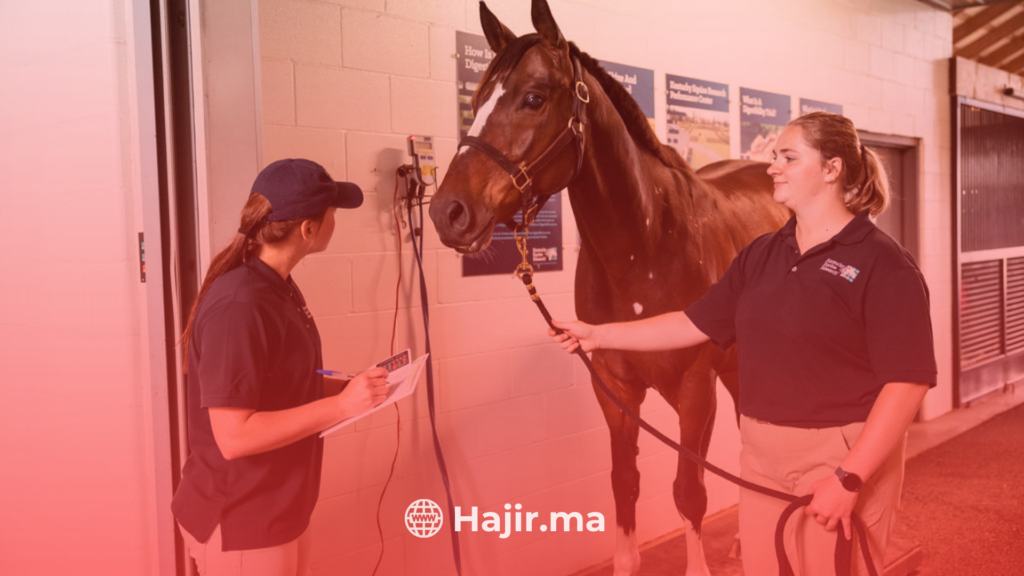In the world of the military, animals, particularly dogs and horses, play a crucial role. They serve alongside our highly skilled Army Vets, and their well-being is entrusted to a dedicated group of professionals known as Veterinary Technicians. In this article, we’ll delve into the fascinating role of a Veterinary Technician in the Army, exploring their responsibilities, challenges, and the valuable experience they gain along the way.

The Royal Army Veterinary Corps (RAVC)
Leading the Way in Animal Care
The Royal Army Veterinary Corps (RAVC) stands at the forefront of ensuring the well-being of Military Working Animals (MWAs). This encompasses everything from promoting good animal husbandry to providing training practices, preventive medicine, and care. RAVC sets the standards for animal care in the military.
The Responsibilities of a Veterinary Technician
Veterinary Technicians in the Army take on a wide range of responsibilities to ensure the health and welfare of the animals that serve our nation. Here are some key aspects of their role:
Overcoming Physical Challenges
Working with animals, especially in a military setting, can be physically demanding. Veterinary Technicians need to be prepared for all kinds of physical challenges, from handling large horses to assisting with injured search dogs.
Managing Equipment and Supplies
In a field where precision and preparedness are paramount, Veterinary Technicians are responsible for managing and maintaining veterinary equipment and supplies. This ensures that they are always ready to provide care when it’s needed most.
Patience and Consistency
Animals can be unpredictable, and gaining their trust and cooperation requires patience and a consistent approach. Veterinary Technicians use their expertise to ensure that animals are comfortable during medical procedures and examinations.
Versatility in Clinic and Field
Veterinary Technicians work in diverse environments, from clinical settings to field operations. They must be adaptable, capable of setting up an operating theatre one day and nursing hospitalized animals in a remote location the next.
The Rewards of Being a Veterinary Technician
Working as a Veterinary Technician in the Army is not just a job; it’s a fulfilling experience with numerous rewards:
- Valuable Qualifications: The skills and knowledge gained as a Veterinary Technician can lead to valuable qualifications that are highly regarded in both military and civilian healthcare settings.
- A Path to Civilian Life: For those who choose to transition to civilian life, the experience gained in the Army can open doors to fulfilling careers in veterinary medicine and related fields.
- Enjoying Life Beyond Duty: While building their skills and career, Veterinary Technicians also have the opportunity to enjoy sports and forge lifelong friendships with fellow service members.
Join the Ranks of Veterinary Technicians
If you have a passion for animals and a desire to serve your country while building a rewarding career, becoming a Veterinary Technician in the Army could be the perfect fit for you. This role not only allows you to make a difference in the lives of military working animals but also offers personal and professional growth that will last a lifetime.
Conclusion
In the Army, the care of animals is a noble and vital endeavor, and Veterinary Technicians are the unsung heroes who ensure the well-being of these loyal companions. Their work not only strengthens our military but also provides them with skills and experiences that can shape their futures. If you’re ready to embark on a fulfilling journey of service and care, consider joining the ranks of Veterinary Technicians in the Army.
FAQs
1. What qualifications are required to become a Veterinary Technician in the Army?
- To become a Veterinary Technician, you typically need a high school diploma or equivalent. Military training will provide the specific skills required for the role.
2. Can I continue a career as a Veterinary Technician in civilian life after my service in the Army?
- Yes, the experience gained in the Army can be a strong foundation for a career as a Veterinary Technician in the civilian sector.
3. Do Veterinary Technicians in the Army work exclusively with dogs and horses?
- While dogs and horses are common, Veterinary Technicians may also work with other animals used in military operations.
4. What is the work environment like for Veterinary Technicians in the Army?
- Veterinary Technicians work in a variety of settings, from clinics to field operations, adapting to different conditions as needed.
5. How can I apply to become a Veterinary Technician in the Army?
- You can apply through the official Army recruitment website or contact your nearest Army recruitment office for more information on the application process.






